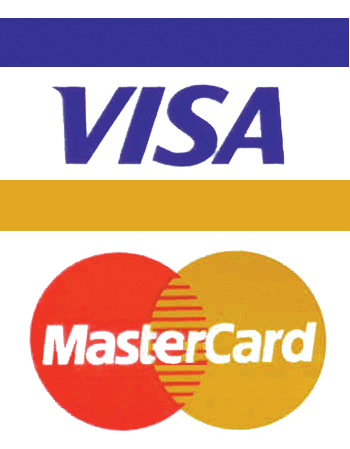 Written for WL Central by John Smith
Written for WL Central by John Smith
WikiLeaks is a multi-award-winning, non-profit, public-interest whistleblower-publishing organisation employing some of the best and most celebrated investigative journalists in the field.
For six months, without explanation or legal justification, MasterCard and Visa have illegally blocked all public donations made through their systems from reaching WikiLeaks. So WikiLeaks is suing them for access to these donations. Some people ask why WikiLeaks is doing this, instead of only using its present means to continue to publish the US Embassy Cables, of which more than 234,000 remain to be published.
The answer is twofold.
First, Visa is illegally sitting on over fifteen million dollars worth of public donations to WikiLeaks, even though WikiLeaks has not broken any laws, anywhere, ever. WikiLeaks pays over a million dollars in operating costs each year. The money which Visa have illegally frozen was intended by public donors for the use of WikiLeaks in pursuing its public-interest whistleblower-publishing program, which of course includes the US Embassy Cables project.
So, WikiLeaks, by suing Visa, is firstly seeking access to the backlog of publicly-donated funds which it will need in order to properly continue its work of publishing the cables. By suing Visa for the money lawfully owed to them, they are in fact continuing the effort to publish the remaining cables, by making those resources available to use in that project. It's not “instead” of publishing the cables, it's “in order to” publish them with the same meticulous care and attention to detail that we have come to expect, at their desired rate of publication.
WikiLeaks, after four years of world-changing revelations in the public interest, remains with a perfect safety record (despite libellous smear campaigns from a variety of insecure quarters who feel threatened by WikiLeaks' prowess in speaking truth to power, not a single individual has ever even been even alleged to have come to harm as a result of any publications by WikiLeaks, although those pointing the finger are in many cases exposed as guilty of worse by the evidence WikiLeaks' publications provide).
Secondly, these lawsuits do double duty as legal activism, quite apart from their primary aim of uniting WikiLeaks with the millions of dollars owed to it but illegally being blocked by MasterCard and Visa. WikiLeaks is taking a stand on legal principle: the triumph of civilised law and order, over the thuggish, illegal abuse of power by two titanic and amoral financial organisations with unlimited resources: Visa and MasterCard, who have acted as though unaccountable to the law and against public interest. In short, if we don't stand up for the law, we will lose its protection.
Visa and MasterCard have acted like reckless gangsters in their unprecedented illegal financial blockade. Visa alone holds around 70% of market for processing credit card payments in Europe, MasterCard holds around 26%. So, in addition to the direct damage to WikiLeaks' (non-profit) business that Visa and Mastercard's illegal actions have caused, the position adopted by these companies by acting a) illegally and b) against the public interest represented by WikiLeaks, poses a direct threat to the rule of law wherever they dominate the market share, posing immediate danger to the basic rule of justice, indeed to civilisation itself.
For the above reasons, it's clearly essential that we support WikiLeaks in its insistence on asserting its rights under the law, and secondly, on the rule of law, in the public interest.
By asserting its lawful right to access the public donations illegally being withheld by Visa and MasterCard, as well as by insisting that these illegal acts are brought to justice under the law, WikiLeaks simultaneously claims its legitimate and significant revenue of public donations intended by donors for use in its publishing mission, whilst ensuring that the legal rights of all are acknowledged, and protected from similar abuses of power in the future.
Theme by Danetsoft and Danang Probo Sayekti inspired by Maksimer